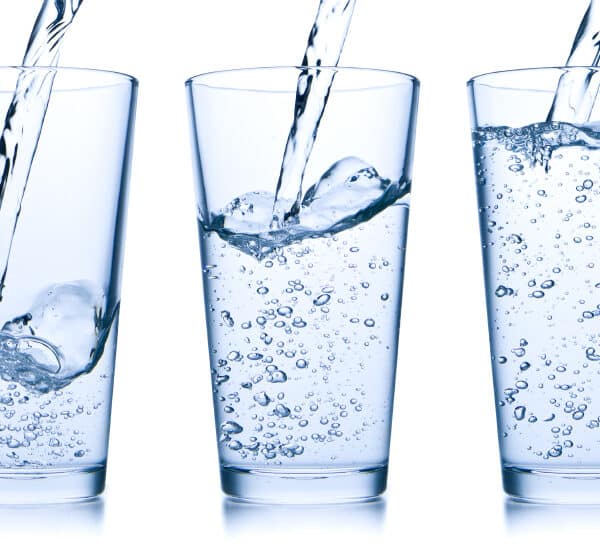
This week, we again turn to the International Longevity Centre’s new report on Hydration and Older People in the UK: Addressing the Problem, Understanding the Solutions, to look at two examples of good practice, where individuals and organisations are working to ensure good hydration practice in care homes is routine, accessible and appropriate.
Improving hydration in care homes case study – Great Yarmouth
A specialist dementia care home has found that having specific hydration policies and practices has had a positive effect on the health and well-being of its residents. Maintaining good hydration can be challenging for the residents of this home due to the effects of their dementia, namely that they may no longer feel thirsty or remember that they need to drink. As a result, a range of strategies are used across the home overall, as well as individual care plan strategies, to ensure adequate hydration.
Strategies include encouraging residents to consume 700 – 800mls of fluid in the form of drinks with a further 200 – 300mls milk added onto cereals by the end of breakfast. Drinks are then continually offered during the morning, at lunch, at afternoon tea, at the evening meal and during the evening, Consumption of drinks often drop off during the evening, but adequate fluid intake is helped by the early fluid boost.
Staff ensure they are familiar with each person’s favourite drinks and exactly how they like them on admission. Equally staff ensure that residents are offered drinks in their favourite cup. For example, one resident always asks for a ‘green drink ‘(orange squash in a green beaker). In addition, lounges have cold water and a tray of tea for all visitors, so that visitors are encouraged to drink with, and offer additional drinks to residents.
The home recognises that you also get water from the food you eat (on average, food provides about 20% of total fluid intake). It incorporates strategies based on individual need, offering high fluid foods including soups, jellies, ice cream, custards and yogurts for those who may not feel like drinking so much – so that fluid intakes are always supported. Cups and saucers, mugs, straws and spouts are available to support drinking as needed (which may vary from day to day). Additional strategies are added for those with colds and coughs, shortness of breath, or on medication which might affect hydration status e.g. diuretics. Finally, urinary tract infections and bowel movements are monitored, and dealt with as a priority.
Staff observed several positive effects following the hydration policy being implemented including:
- Calmer residents;
- Ability to reduce medications to modify behaviour – Extra fluids facilitate medication is working properly, especially anti-hypertensive drugs and antidepressants;
- Improved eating habits and appetites amongst well hydrated residents – Perhaps because they are more alert and able to enjoy the experience of food and drinks. This is not only beneficial for their nutritional status but also for supporting social interaction and improving engagement with the residents;
- Less problems with constipation and need for laxative or similar treatment;
- More controlled and successful urination – Hydration helps to maintain the urinary sensation which can be lost in dementia;
- Adequate fluids can help the person to sleep well – Being thirsty can cause restlessness, and disrupted sleep pattern. If someone doesn’t sleep well at night, they may sleep during the day, miss out on vital fluids and the cycle continues.
The HYDRATE in care homes project
Following a hydration pilot in 4 care homes that showed significant reductions in the incidence of falls, urinary tract infections and hospital admissions, the HYDRATE project in residential and nursing care homes project has been rolled out across 31 homes in the NE Hants and Farnham clinical commissioning group locality. This commenced in April 2014, will last 12 months and includes each home signing up to a Hydrate Charter.
The aims of the charter include to:
- Improve hydration awareness among staff and residents;
- Encourage optimal hydration by meeting the hydration needs of all residents;
- Ensure access to clean drinking water and hot drinks 24 hours a day;
- Reassure residents that prompt assistance with all toileting needs will be provided.
Each home nominated a staff member as a hydration champion who attended free training sessions with the project manager, a community dietitian. The training acknowledged skills the care home staff already possessed, and focused on practical issues and a simple 2 point action plan tailored for each champion’s particular care home. The requirements for individualised drinking regimes were also emphasised. In addition a resource pack was provided that included such information as top tips on hydration for staff and managers separately, details of the Social Care in Excellence recommendations, advice on drinking behaviour and a checklist to help update hydration policies.
Outcomes being assessed in this project include incidence of falls, urinary tract infections and hospital admissions among the residents. Whilst still ongoing, the results of the preliminary evaluation suggest that the project has succeeded in raising awareness and understanding of hydration issues through the appointment of care home hydration champions. The challenge is whether over the year, this will produce long term behavioural change among staff and residents leading to measurable outcomes that represent the improvements in the residents’ hydration status and their consequent well-being.
Conclusions
There is clearly some good practice in care homes to support good hydration amongst residents, but, this varies and can depend on local buy-in and individual innovators. Good practice is often transferable, and with support, small changes could be transformative.



